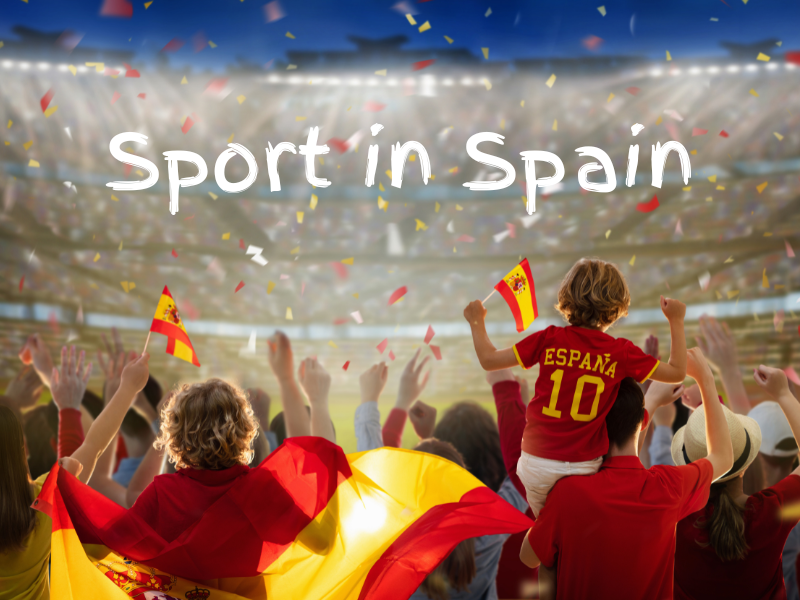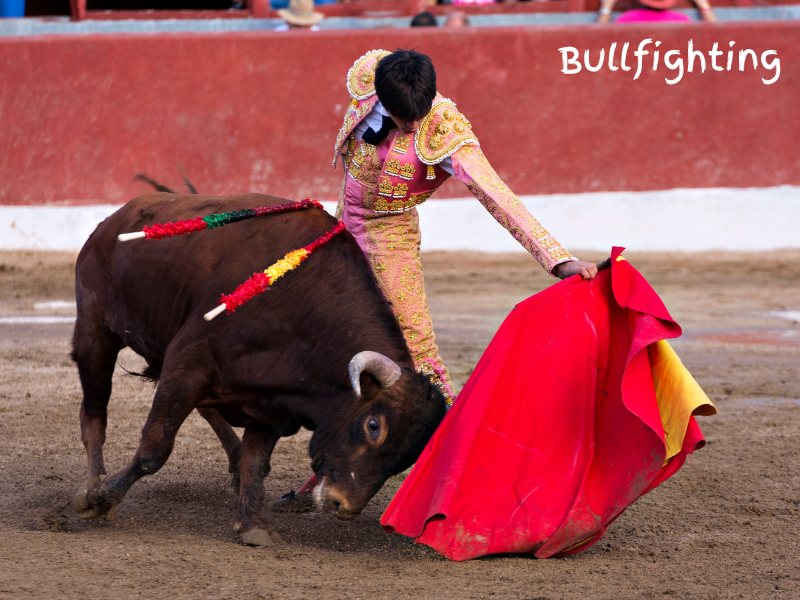What Are the Most Popular Sports in Spain?

Introduction to Sports Culture in Spain
Spain boasts a rich and diverse sports culture deeply rooted in its history and traditions. The evolution of sports in Spain reflects the country’s dynamic past and its varied geographical landscape. From the ancient Roman era, where games and physical contests were integral to society, to the modern era, sports have continuously played a significant role in Spanish life.
Historically, bullfighting was one of the most prominent traditional sports, deeply embedded in Spanish culture. Although its popularity has waned over recent years, it still holds cultural significance in various regions. Soccer, known locally as fútbol, emerged as a dominant sport in the early 20th century, rapidly gaining widespread popularity. Today, Spain is home to some of the world’s most famous soccer clubs, such as FC Barcelona, Real Madrid, or Atlético de Madrid, which have millions of passionate supporters both domestically and internationally.
Spain’s diverse climate and geography have also influenced the types of sports that thrive in different regions. The Mediterranean climate along the coastlines is perfect for water sports like sailing, windsurfing, and swimming. The mountainous regions, such as the Pyrenees and Sierra Nevada, provide ideal conditions for winter sports like skiing and snowboarding. Additionally, the country’s vast landscapes offer excellent opportunities for hiking, cycling, and other outdoor activities.
Sports in Spain are more than just physical activities; they are a fundamental part of social life and community bonding. Local sports clubs and events serve as gathering points for communities, fostering a sense of unity and pride. This communal aspect is evident during major sporting events when entire towns and cities come together to support their teams, creating a vibrant, festive atmosphere.
Understanding the historical context and the role of sports in Spanish society is crucial for appreciating why certain sports have become particularly popular. The interplay of tradition, geography, and communal values continues to shape Spain’s sports landscape, making it one of the most engaging and dynamic in the world.

Football: The Dominant Sport
Football, known as soccer in some parts of the world, overwhelmingly stands as the most popular sport in Spain. Its roots in the country date back to the late 19th century, with the establishment of the first football clubs and the formation of regional leagues. However, the sport truly began to flourish with the inception of La Liga in 1929, which has since evolved into one of the most competitive and prestigious football leagues globally.
Spanish football clubs, particularly FC Barcelona and Real Madrid, have garnered significant acclaim on both national and international stages. These teams have accumulated numerous La Liga titles, Copa del Rey trophies, and UEFA Champions League victories, solidifying their status as football powerhouses. The intense rivalry between them, known as El Clásico, captivates millions of fans worldwide, highlighting the deep-rooted passion for the sport in Spain.
The Spanish national team has also achieved remarkable success. La Roja, as they are affectionately known, won the FIFA World Cup in 2010 and secured European Championship titles in 1964, 2008, and 2012. These triumphs have not only elevated the team’s status but also inspired a new generation of football enthusiasts across the nation.
Football’s immense popularity in Spain is further evidenced by the passionate fan culture that permeates every aspect of the sport. Stadiums are often filled to capacity, and local derbies create an electric atmosphere that underscores the country’s love for the game. Local clubs play a significant role in their respective regions, fostering community spirit and local pride.
Youth development programs and grassroots initiatives are crucial elements in maintaining football’s prominence in Spain. Academies like La Masia (FC Barcelona) and Real Madrid’s youth system are renowned for producing world-class talent. These programs focus on nurturing young players, ensuring a continuous influx of skilled athletes who contribute to the sport’s enduring popularity.
Basketball: A Rising Sport
Basketball has seen a significant surge in popularity in Spain over recent decades. The sport’s development can be traced back to the establishment of the Asociación de Clubs de Baloncesto (ACB) League in 1983, which has become one of the premier professional basketball leagues in Europe. The ACB League has not only enhanced the domestic competition but has also positioned Spanish teams as formidable contenders in European tournaments. Clubs like Real Madrid and FC Barcelona have consistently performed well in the EuroLeague, earning international acclaim.
The Spanish national basketball team has also enjoyed considerable success on the global stage. The team’s triumphs include winning the FIBA World Cup twice, in 2006 and 2019, and securing silver and bronze medals in the Olympic Games. These achievements have significantly raised the profile of basketball in Spain and inspired a new generation of players and fans.
Key figures in Spanish basketball have played pivotal roles in promoting the sport. Pau Gasol, a towering presence in both the NBA and international competitions, has become a national icon. His contributions to the success of teams like the Los Angeles Lakers and the Spanish national team have cemented his legacy. Ricky Rubio, another prominent figure, has also made a significant impact with his skills and leadership, both domestically and in the NBA.
Basketball academies and youth development programs are integral to the sport’s growth in Spain. Institutions such as the Joventut Badalona academy have been instrumental in nurturing young talent and providing pathways to professional careers. These programs emphasize skill development, teamwork, and sportsmanship, ensuring that the future of Spanish basketball remains bright. The continuous investment in youth development reflects the country’s commitment to maintaining its competitive edge and fostering a strong basketball culture.
Other Popular Sports in Spain
While football and basketball dominate the sports landscape in Spain, the country boasts a rich tapestry of other popular sports that enjoy significant followings. Tennis is one such sport, with Rafael Nadal standing as a global icon and one of the greatest tennis players of all time. His numerous Grand Slam victories and Olympic gold medals have galvanized a strong tennis culture in Spain, inspiring a new generation of players and fans alike.
Cycling also holds a prominent place in the heart of many Spaniards, with events like the Vuelta a España attracting international attention. This grand tour is one of the most significant cycling competitions in the world, alongside the Tour de France and the Giro d’Italia. Spanish cyclists have consistently performed well in these events, enhancing the sport’s popularity within the country.
Spain has also had many winners of the Tour de France over the past 30 years. Most notably the rider from Navarra, Miguel Induráin.
Handball is another sport with a strong following in Spain. The national team has achieved considerable success on the international stage, winning World Championships and European Championships. The sport is particularly popular in regions such as Catalonia and the Basque Country, where local clubs boast fervent support.
In addition to these, Spain has made its mark in the world of Formula 1. Fernando Alonso, a two-time World Champion, has brought considerable attention to the sport within the country, making Formula 1 races a much-anticipated event for Spanish motorsport enthusiasts. Similarly, MotoGP has a loyal fan base, with several Spanish riders achieving remarkable success.
Traditional sports also hold cultural significance in Spain. Bullfighting, though controversial, remains a deeply ingrained part of Spanish heritage, particularly in regions like Andalusia. Pelota, especially popular in the Basque Country, is another traditional sport that has captivated audiences for centuries.
This diverse array of sports highlights the multifaceted nature of Spain’s athletic interests, proving that the country’s passion for sports extends far beyond the realms of football and basketball.